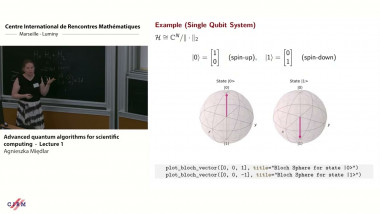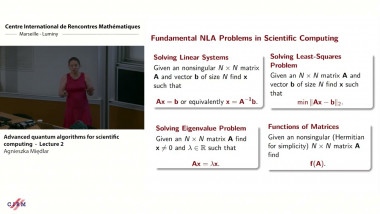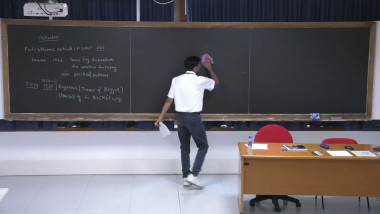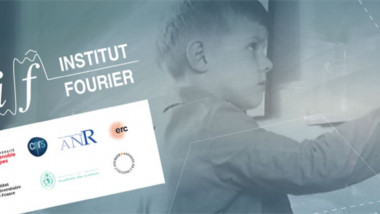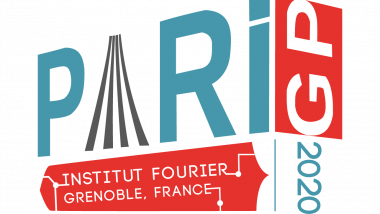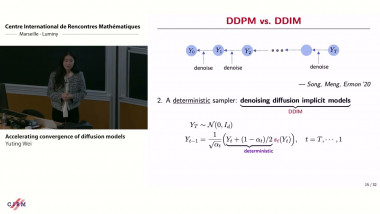Appears in collection : 2019 - T1 - WS1 - Variational methods and optimization in imaging
In image processing problems, the minimization of total variation (TV) based energies requires discretization schemes, such as the commonly used finite differences approach. Unfortunately, such schemes generally lead to images which are difficult to interpolate at sub-pixel scales, which can be extremely problematic for subsequent processing. In this talk, we study a Fourier-based estimate called Shannon total variation (STV), which behaves much better in terms of sub-pixel accuracy and isotropy. We will first explain how the STV regularization can be efficiently handled with modern dual algorithms, and show that replacing the classical discrete TV model by this STV variant does not raise any theoretical or numerical difficulties. We will then consider many classical TV-based restoration models, such as image denoising (Rudin, Osher and Fatemi), image deblurring and spectrum extrapolation (Guichard-Malgouyres), where the improved behavior of the Shannon total variation yields images that are easy to interpolate. Lastly, we will propose a new STV-regularized optimization problem (involving a data-fidelity term formulated in the frequency domain), which can be used to remove aliasing from an image, or given an image which is difficult to interpolate, can produce a visually similar image which can be easily interpolated. The experimental results that we provide show the interesting perspectives opened by this model in applications where the correct sampling of the data (according to the Shannon sampling theory) is carefully taken into account.
